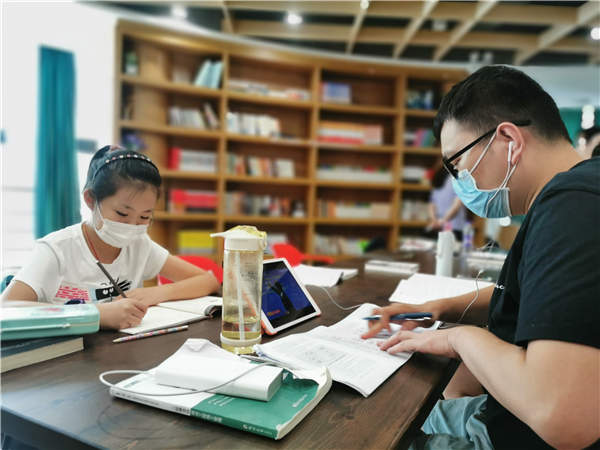Community knowledge bases blossom
By Wang Kaihao | China Daily | Updated: 2020-09-21 08:00

However, the government budget only covers the cost of constructing the reading spaces, operators of the venues have to create their own income.
"For sustainable development in the long run, it's better to blend the government support with dynamic business models," Meng says.
The city government has waived the rental costs and charges for water and power at the reading spaces, and the money to buy new books for the libraries will also be covered by the public purse. However, other outgoings, like employee wages, have to be met by profit generated by the venue.
Consequently, operators of the reading spaces are encouraged to develop their own ways of attracting more visitors and making ends meet at the same time. Meng says seasonal evaluations involving 32 criteria have been done on the dozens of reading spaces, and bonuses will be granted to those displaying excellent performance. About 6 million yuan will be allocated this year.
Zheng Fangfang, the manager of Apricot Flowers Academy, understands the challenge. Every week, her team will buy about 100 new items for the bookstore, and rotate them weekly to introduce resources from the city-level libraries.
"We take the responsibility of making up the gaps in the public library system," she says. "But at the same time, we need to keep pace with the market."
Sales of cultural souvenirs, food and beverages, as well as holding paid-up training programs have helped Apricot Flowers Academy to blossom in the community. However, Zheng has a bigger ambition-to revive reading among the general public, whose time and attention has been seized by digital devices and social media.
"We have organized reading clubs," Zheng says. "People share the books they are reading in our WeChat group, and they are invited to attend in-person salons in our reading space. Sometimes, they talk about movies.
























